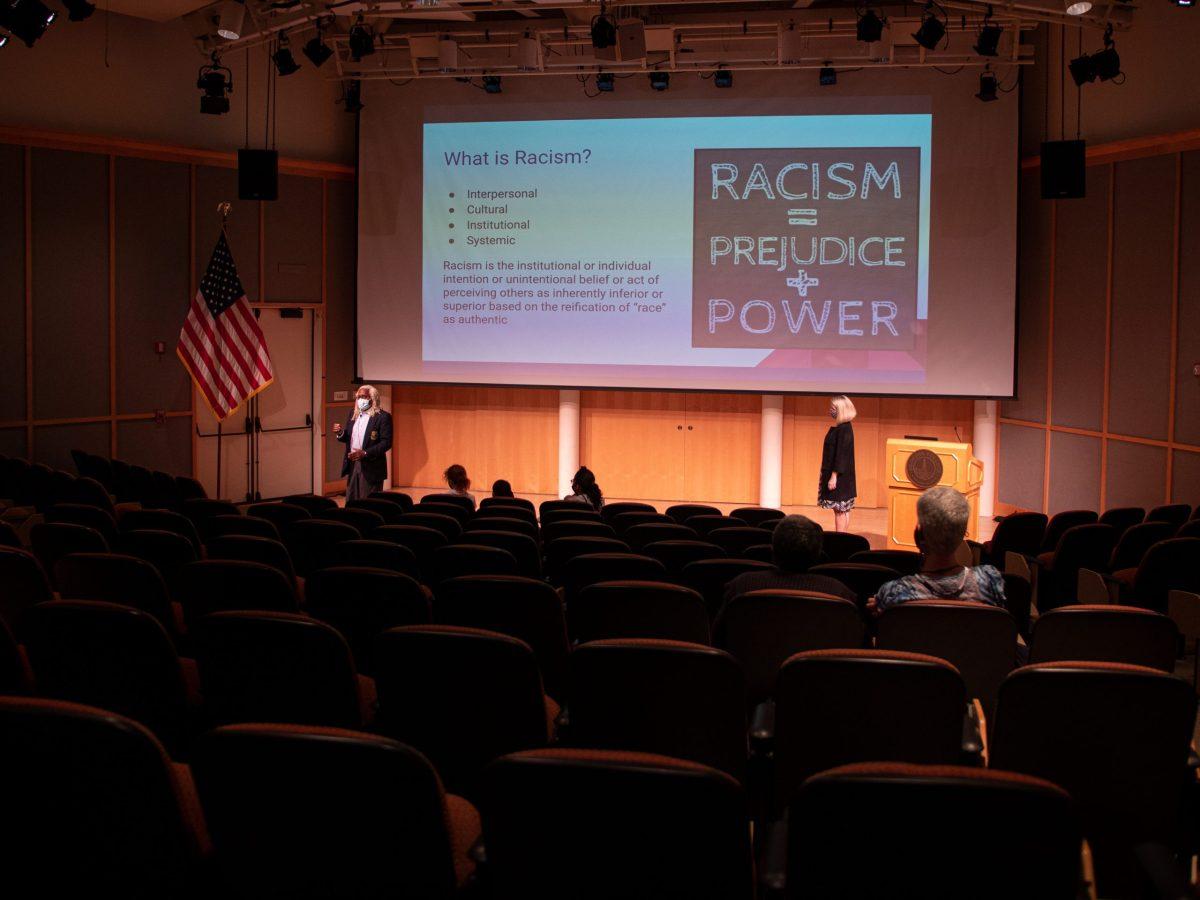By Rachel McLeod-Warrick
President John Williams addressed the community in-person and over Zoom on Friday, September 5, in a metaphysical talk titled ‘Identity: Celebrating the Unique.’ Interweaving Christian Science, his own life experiences, and the current climate surrounding racial injustice, Williams delivered a thought-provoking speech on what it means to truly see, acknowledge, and celebrate every person’s uniqueness.
For much of his life, Williams said, he sought to treat people without the influence of factors irrelevant to their abilities, such as race, age, and gender. He used to describe himself as “colorblind” with regards to race, before recognizing how damaging such an assertion can be, he said.
“In doing so, I was denying uniqueness. Hence, I was denying identity. Then it occurred to me: I was doing something worse. I was actually making that person invisible. If we do not treasure the uniqueness and identity of [everyone] we are making them invisible.”
“If God is all and has all those good qualities and there’s no place where God is not, we cannot escape the conclusion that we have access to and reflect all those qualities in our unique different ways that give us our identity,” he said.
Williams, wearing a necktie picked by his wife which drew heavy compliments, was speaking in the first of the new Faith in Action series, formerly known as Exploring Metaphysical Concepts (EMC). “If you’re first, then you don’t have to be last,” said Williams as he kicked off the series in Wanamaker Hall, joined by fewer than 20 students and employees, masked and socially-distanced. The talk was broadcast over Zoom, drawing 22 viewers.

Williams, with his own rich international background and expertise, spoke about his father who was a colonel in the United States military during World War II and the wars in Vietnam and Korea, when many platoons were still segregated. Williams took listeners along on his experiences, connecting the concept of denying identity with several stories of his travels abroad. Only some “qualities that we tend to make invisible” were addressed in his stories, he said, adding that there are others.
On many of his trips to Vietnam, Williams came face to face with the transgenerational health effects of Agent Orange, a chemical used by the U.S. military during the Vietnam War. In one instance, while standing in the street, Williams “came face to face with someone with no face.”
“I say it that way to emphasize how jarring it is to look at someone staring right at you and there is nothing you necessarily recognize,” he said. The young man had a hole in place of his nose due to birth defects caused by Agent Orange.
Williams encountered the young man several times throughout his trip, observing that he was head of a group of street children. “I noticed that this group treated this part of the city of Saigon not as their turf. This was their community, they knew all the shop keepers, they knew the hotels”, and it didn’t take them long to know” Williams and his wife at the time, Judy.
After Williams gently rebuffed their first request for money, he wasn’t approached in that way again: “We were now a part of the community.”
Towards the end of the trip, Williams felt that strong sense of community when the young man he’d first met helped him find his wife, he said. After losing contact with her and beginning to look around the streets, the young man noticed, took Williams’ hand, and led him to his wife.
“If that is not love expressed, I don’t know what is,” said Williams emphatically, connecting the experience to Paul’s writings in I Corinthians, quoting from the King James Bible and the New Living Translation.
“And the parts we regard as less honorable are those we clothe with the greatest care. So we carefully protect those parts that should not be seen, while the more honorable parts do not require this special care. So God has put the body together such that extra honor and care are given to those parts that have less dignity. This makes for harmony among the members, so that all the members care for each other,” he read from the New Living Translation.
This, said Williams, is a metaphor for community. Each member of every community must have concern for each other, and must never make each other invisible either by holding bias over traits such as race and gender, or by deciding not to see the limits society has placed based on those traits. By valuing individuality and every member, communities become strengthened together and connect through God-given qualities, he said.
The talk was “very inspiring,” said Sophie Ungerleider, a freshman. “I liked the relating [of] color blindness to not seeing the individual for their uniqueness. I’m looking forward to the rest of the series of Faith in Action.”
In the featured photo, President John Williams speaks in Wanamaker Hall, standing 20 feet from the audience members, all of whom were masked. Photo by John Woodall.


